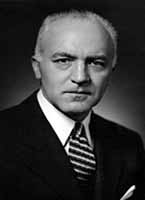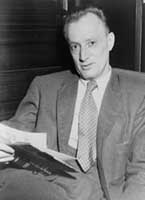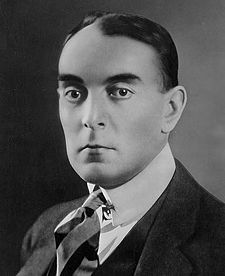
Ethan E Lewis
Born: May 7, 1964
Died: Springfield, Illinois in September 12, 2023 Pen Name: None Connection to Illinois: Lewis lived in Springfield. He was a Professor of Literature at the University of Illinois at Springfield for 22 years. Biography: Ethan Lewis grew up in Northampton, moving later to Boston where he attended Boston College, graduating first in his class. Ethan was a retired Professor of Literature at the University of Illinois at Springfield, where he was beloved by students for twenty-two years. After graduating, Dr. Lewis went to Sangamon State University, later the University of Illinois at Springfield, in 1993. He specialized in Shakespeare, early 17th century drama and early 20th century poetry. He was selected University Scholar in 1999, and he received the Pearson Award for distinguished teaching in 2007. He published several books of essays and poetry. In 2001, he coauthored a literary biography of mystery writer, Dorothy L. Sayers, with his good friend, Robert McGregor. It subsequently won the prestigious Edgar Award given by the Mystery Writers of America. He also taught potential college students under a program sponsored by the Illinois Humanities Council. He retired in 2021. To honor his dedication to UIS students, the Ethan Lewis Memorial Scholarship Fund has been created.
Awards:
- Conundrums for the Long Week-End : England, Dorothy L. Sayers, and Lord Peter Wimsey 2001 Edgar Award Prom Mystery Writers of America
Selected Titles
 |
Essays and pensées on Milton and Camus ISBN: 1527517705 OCLC: Newcastle-upon-Tyne : Cambridge Scholars Publishing Newcastle-upon-Tyne : 2023 This book comprises an extensive series of analyses which span the respective oeuvres of these, surprisingly paired, world literary masters. The poet and novelist-philosopher, though treated separately, nevertheless prove complementary book-fellows. Notably, both espouse and practice a vigilant attentiveness; the obligation to strive for good by one’s lights, and to create lest history repeat; and on rare occasions, a duty to engage in moral contradiction for a higher cause, though only after the most scrupulous reflection. This book presents the ingenious artistry of both writers and further proves their contemporary relevance, as well as giving readers the ability to look at the works of Milton and Camus through a new lens. |
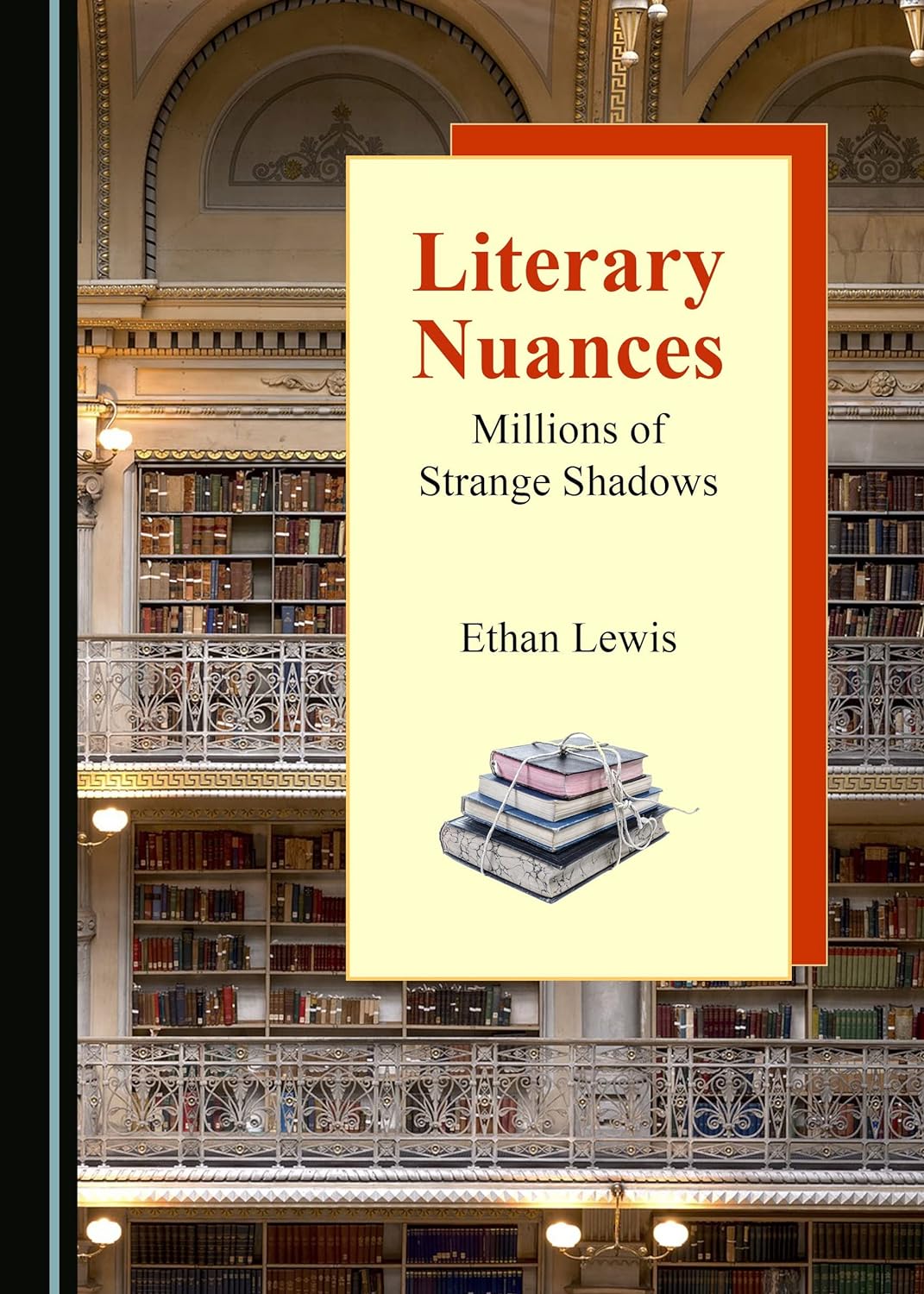 |
A Compendium of Literary Critiques ISBN: 1527508269 OCLC: Cambridge Scholars Publishing 2018 This series of critical pieces is variously structured, with conventional essays, extended meditations, and short analytic notes appealing to differing tastes. Indeed, the diverse format constitutes a secondary thesis: like the artists about whom they write, literary critics are obliged to discover (and execute, of course) the form best suited to convey the content. The material in this case consists of meticulous close readings of authors almost spanning the alphabetical spectrum: from Akhmatova to Yeats; from Blake and Borges to Williams and Wittgenstein and likewise, ranging over centuries: the sixteenth through the twentieth. Shakespeare and the Modernists largely figure in these musings, which illuminate, entertain, and genuinely engage. As T.S. Eliot remarked, Our talking about poetry is an extension of our experience of it; and as a good deal of thinking has gone to the making of poetry, so a good deal may go to the study of it. |
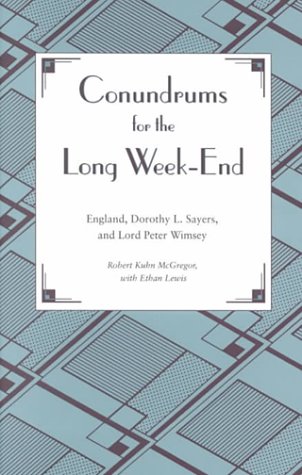 |
Conundrums for the Long Week-End : England, Dorothy L. Sayers, and Lord Peter Wimsey ISBN: 0873386655 OCLC: Kent, Ohio : Kent State University Press, Kent, Ohio : ©2000. Lord Peter Wimsey-amateur detective, man of fashion, talented musician, and wealthy intellectual-is known to legions of readers. His enduring presence and popularity is a tribute to his creator, Dorothy L. Sayers, who brought Lord Peter to life during the long week-end between the First and Second World Wars, as British aristocracy began to change, making way for a modern world. In Conundrums for the Long Week-End, Robert McGregor and Ethan Lewis explore how Sayers used her fictional hero to comment on, and come to terms with, the social upheaval of the time: world wars, the crumbling of the privileged aristocracy, the rise of democracy, and the expanding struggle of women for equality. |
 |
Literary Essays on Explicable Splendours ISBN: 1527541533 OCLC: Newcastle-upon-Tyne : Cambridge Scholars Publishing Newcastle-upon-Tyne : 2019 A literary critic aspires to eloquence, though makes no pretense to mirror the sublimity of the monuments inspiring his endeavors. Poets express their wonder through works of art. Critics articulate their homage via analysis of art’s workings. Hence, these essays and lectures, addressed to the quizzical, though not of necessity scholarly, reader, explore Shakespeare and noted re-envisioners of the Bard; four modern novels that interrogate identity; and underappreciated works and writers. They conclude with a series of pensees (thinkings) that, in the course of glossing nuances, reflect upon the interpretative craft itself. |
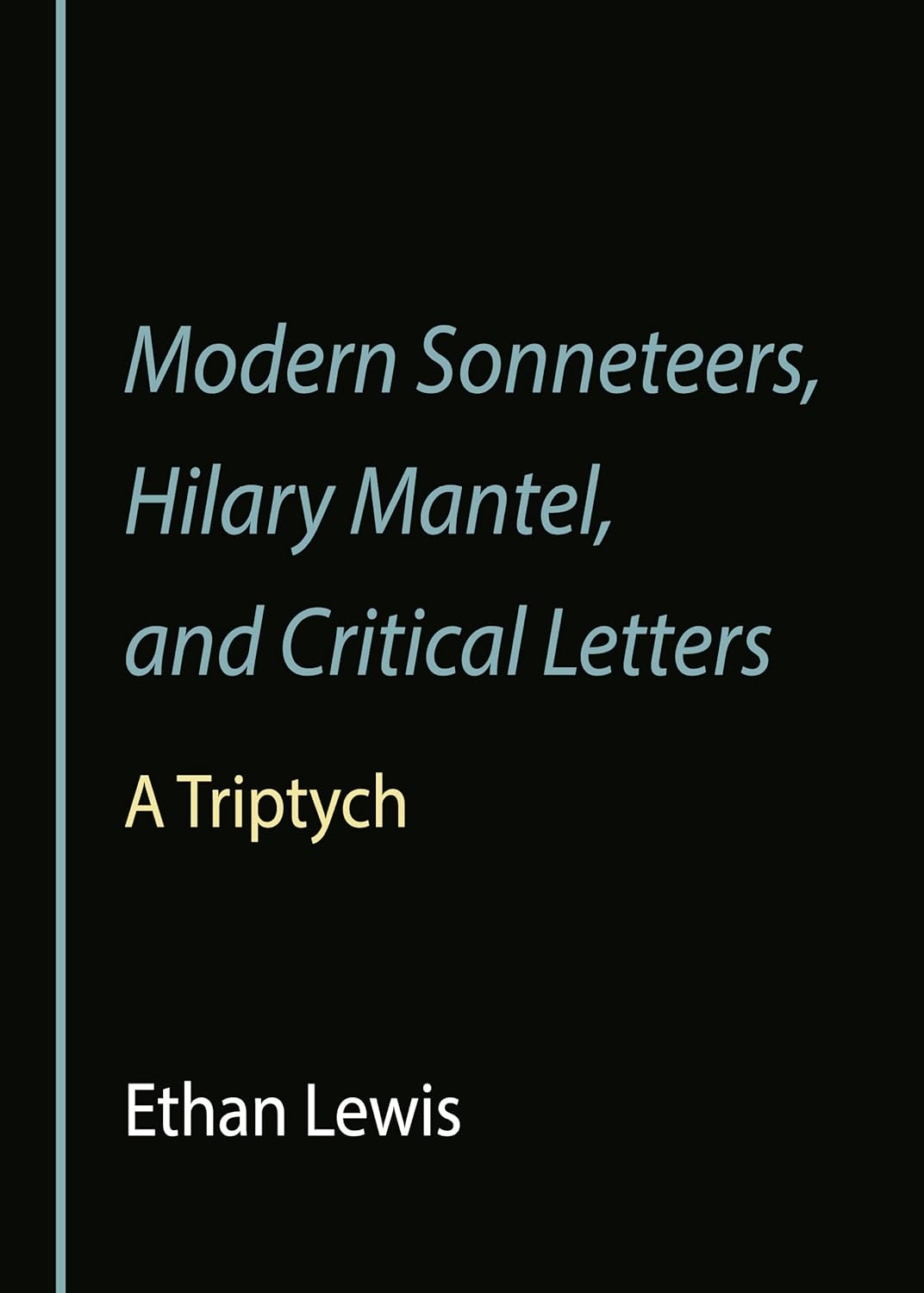 |
Modern Sonneteers, Hilary Mantel, and Critical Letters ISBN: 1527563995 OCLC: Cambridge Scholars Publishing 2021 This series of critiques serves to help demarcate, as well as add to, three specific literary forums. The first section of the book, Modern Sonneteers, discusses the genre plied by countless pens since Petrarchs inception of the sonnet, honed by Shakespeare, and cultivated through Donne, Milton, Keats, and Wordsworth, among others, showing that it thrives still. The twentieth century yielded a second Sonnet Golden Age reminiscent of the first at the apex of the English Renaissance. Auden, Borges, Cummings, Larkin, and Stokes comprise part of the cadre of recent masters. The second part of the book, Homage to Hilary Mantel, comprises half-a-dozen pieces on a pre-eminent novelist of our time, whose most notable achievement, The Thomas Cromwell Trilogy, enshrines and reconceives an earlier time. In counterpoint to her historical fiction, literary analyses of Mantel are of necessity new. The essays gathered here shed light on her work, and spur further inquiry. The third section, Critical Letters in Critical Times, compasses pensees written to students, colleagues, and friends regarding Shakespeare, Borges, Nabokov, Wordsworth, Tartt, Schmidt, poetry and ethics, and the sublime. Most of this work is predicated on our unprecedented circumstances ensuing from the COVID-19 pandemic. It stands to reason that our literary analyses will be colored by our situation for some critical times to come. |
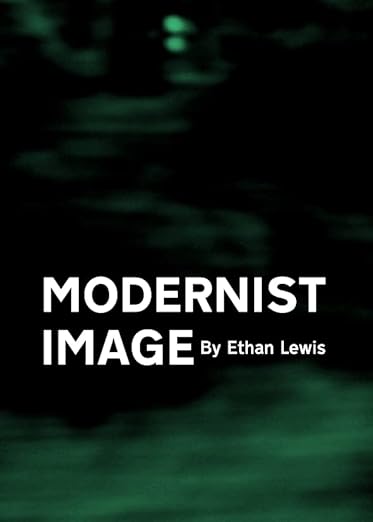 |
Modernist Image ISBN: 1443822329 OCLC: 823733131 Cambridge Scholars Pub., Newcastle upon Tyne, U.K. : 2010. This text would 'make one see something new (by granting) new eyes to see with', as Pound remarked of Imagism. Still he soon dissociated himself from the movement he helped found, to which Eliot never belonged. Why, then, study Pound and Eliot as Imagists? As the former phrased it, to offer 'language to think in' regarding their shared premium on precision; and to explicate differing reasons for this emphasis. Pound plies accuracy to carve distinctions. By carving, he sought to delineate components of a model culture. Conversely, and paradoxically, severances renderable through apt language enabled Eliot to intuit a divine 'amalgamation - which would displace inevitable confusions among objects, and between subject and object: turmoil dramatized in Eliot's early work. A book focusing this opposition requires concrete manifestations. Imagist poetics of the nineteen teens and twenties, as our authors understood it, informs exploring their disparate tendencies; and provides examples of that contrast. Because they transcended it, Imagism initiates Pound's and Eliot's development. Poets wed to Imagism necessarily treat 'small things' (Dasenbrock), due to their 'poetic of stasis' (Kenner). Imagist techniques, however - presenting interactive 'complexes'; creating illusions of spatio-temporal freedom - set the course for the Modernist long poem. Our subjects extend a tradition, limned by several scholars, principally Sir Frank Kermode. Romantic Imag[ism] 'animates...the best writing between Coleridge and Blake...and Pound and Eliot'. A parallel critical inheritance this study would humbly continue. |
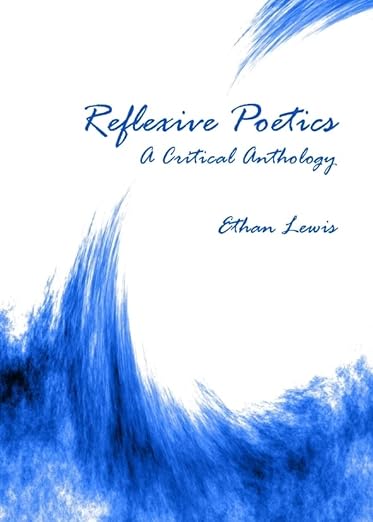 |
Reflexive Poetics: A Critical Anthology ISBN: 1443839981 OCLC: Newcastle upon Tyne, UK : Cambridge Scholars Publishing Newcastle upon Tyne, UK : 2012 It is tremendously important that great poetry be written. It makes no jot of difference who writes it. Ezra Pound's remark makes some polemic, but still more prescriptive sense, as evaluative of our present situation. Some great poetry (never mind the far larger quantity of trash) is emerging - from countless coteries of devoted artists, quite plausibly in your community. This anthology brings to press fifteen exemplary poets from Springfield, Illinois and its environs. Yet though endorsing their wider popularity, this critical anthology advances an interpretative method. We can garner much from reading the justly famed poets reflexively, with those lesser known in our midst. Any specific poem of the highest quality is informed by, and informs through comparison with works of like caliber. Indeed, the test of an obscure gem inheres in critical comparison. And relations never run one way. One may well harbor keener appreciation of Wallace Stevens in light of certain works by Corrine Frisch - just as Keats and Stevens mutually inform one another. The central tenet of this text holds, with Eliot and Frost - a not so unlikely coupling as might be thought, hence a perfect pair to introduce my modus operandi - that we read relationally. No artist ...has his meaning alone. We read C the better to read D, D, the better to go back and get something more out of A. Progress is not the aim, but circulation: to get among the poems where they hold each other apart in their places as the stars do. |
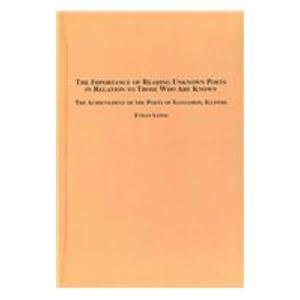 |
The Importance of Reading Unknown Poets in Relation to Those Who Are Known: The Achievement of the Poets of Sangamon, Illinois ISBN: 0773457771 OCLC: Lewiston : Edwin Mellen Pr Lewiston : This critical anthology features fourteen poets toiling in relative obscurity. It includes lucid interpretations that inform by underscoring that we read poets in relation to each other. |
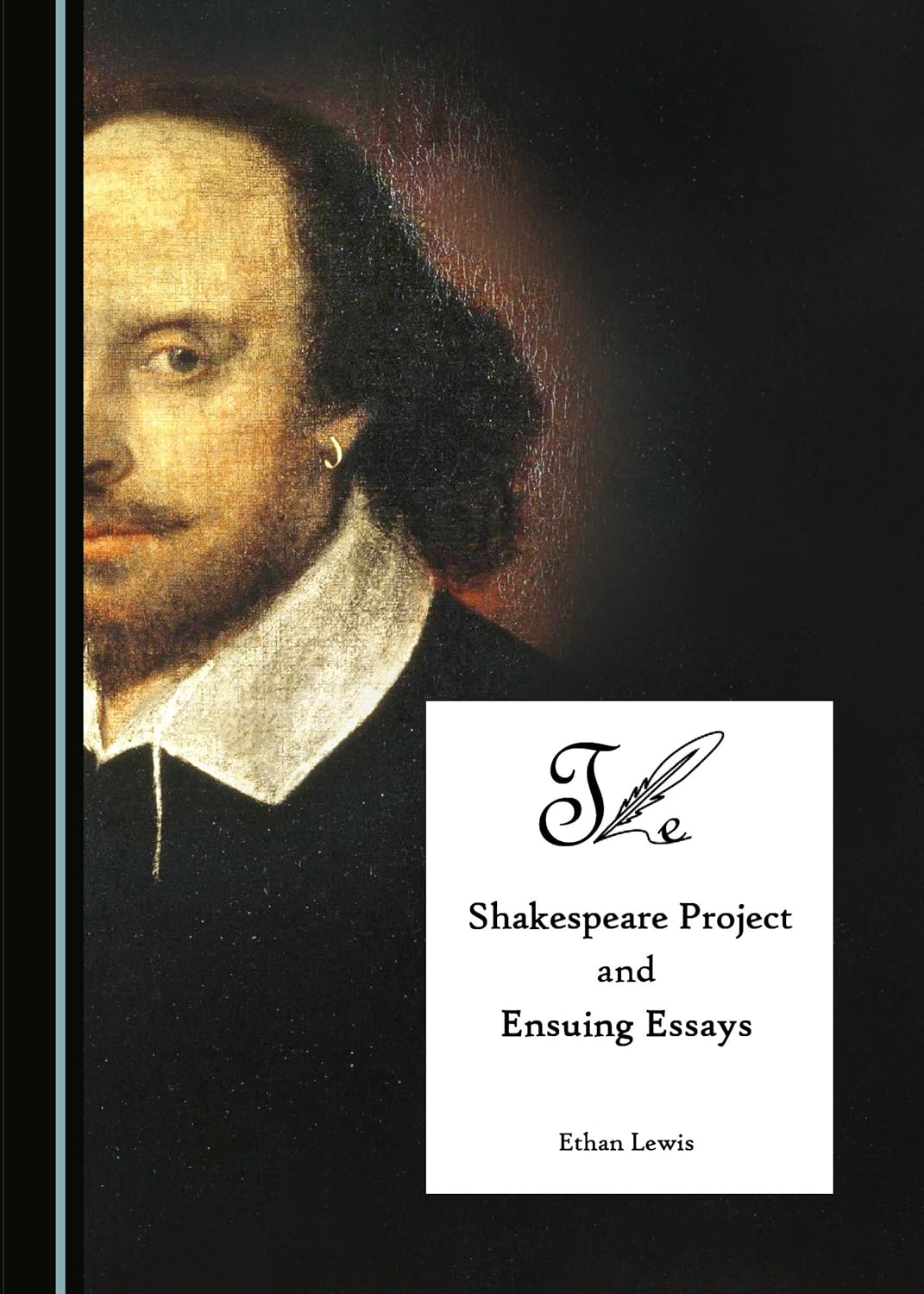 |
The Shakespeare Project and Ensuing Essays ISBN: 1443871591 OCLC: Newcastle upon Tyne, UK : Cambridge Scholars Publishing Newcastle upon Tyne, UK : 2015 For twenty-plus years on a small Midwestern campus, Dr Lewis has directed The Shakespeare Project, a seminar scrutinizing four-six plays per semester with a cadre of accompanying sonnets. Master a method of reading the Bard through focus on a small set vis-à-vis scattershot survey, his syllabi promise, and one not only could, but would want to read Shakespeare not for an age, but for all time (Ben Jonson ) all ones life. The Bards idiom, though complex, proves eminently comprehensible, as have observed such scholars as Kermode, Vendler, Bloom, Garber, Greenblatt, Nuttall, Booth, Eliot, Auden, and others. This book, the harvest of Lewis endeavor, consists of three parts: the seminar essay-syllabi; a collection of close readings of Othello, Macbeth, Hamlet, Henry VIII, Timon, and The Sonnets; and a series of footnotes intended as mini-master essays on minutiae. The Project is grounded on the originary definition of scholarship as studying in school and offers a revisionary reading of three minor characters in Shakespeares tragedies (Emilia, Albany, Siward), in the process of contending for a sensible coalescence of old-fashioned character criticism with New Critical and Poststructural perspectives. The text also formulates criteria for responsible reading via triple vision perceiving the work as at once reality, poem, and play a method forwarded through addressing ethical matters in the works: faith in Hamlet; conscience in Henry VIII; stewardship in Timon of Athens. The Shakespeare Project models reinfusing Shakespeare as terrain for critical thinking that affects everyday life. |


